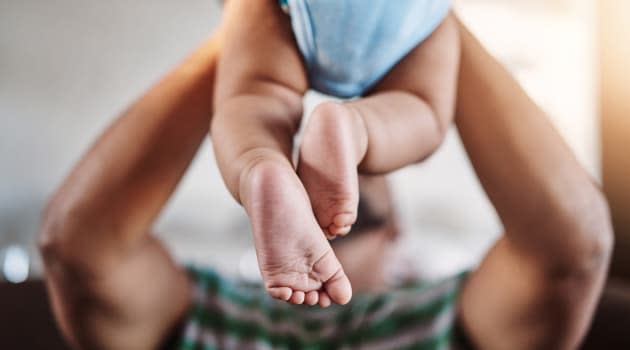Large Companies Most Likely to Offer Paid Parental Leave

While the pandemic has likely shown many working parents the value of paid parental leave, those hoping to find an employer that offers it may want to focus their search on the biggest companies. According to a joint study between data and analytics firm S&P Global and senior membership and advocacy organization AARP, employees are likely to find more flexible policies at companies with a revenue of over $1 billion.
Yet, the study found that as employees juggle the responsibilities of working and raising children during the pandemic, some are hesitant to take advantage of leave policies even when they are offered.
Large companies give employees more leeway
More than half of large companies — 58% — offer paid parental leave, compared with 42% of smaller companies. Study researchers classified businesses that earned revenue of more than $1 billion as large companies and those with revenue of less than $1 billion as smaller companies.
Large companies were also more likely to give their workers the ability to set flexible schedules, with 43% of large companies providing this option compared with 38% of smaller companies.
Still, employers of all sizes do place limits on how much paid parental leave employees can take. For example, only 10% of firms offer at least 14 weeks of primary care leave in which employees receive a minimum of two-thirds of their salary. Also, not all companies offer paid secondary care leave, which is defined as paid leave for the person in the household who is not leading child care duties. Only about 1 in 5 employers — 19% — offer a minimum of two weeks of paid secondary care leave.
Employees feeling the pressure
For many employees, the option of paid parental leave is likely welcome, particularly during the pandemic. Among respondents, more than 30% of family caregivers said they have experienced a “strong increase” in stress because of the COVID-19 outbreak’s impact on their professional and personal lives. Nearly 43% said they have experienced a “moderate increase” in stress. In addition to work-related stress and caregiving concerns, many consumers also are experiencing economic anxiety.
Yet not all employees may feel comfortable using the benefit of paid parental leave, even when it is offered. Senior managers, on average, take less time off for parental or family care than junior employees regardless of the type of leave offered, the survey found. In fact, only 23% of senior managers took more than four weeks of leave compared with approximately 30% of junior staff.
Some workers — particularly the youngest ones — may even fear that using such benefits could hurt their careers. Nearly two-thirds of caregivers between the ages of 18 and 24 (63%) said they believed their caregiving duties have caused them to be penalized at work. In contrast, 45% of those between the ages of 35 and 54 and just 14% of those aged 55 and older have felt that way.
An earlier survey found that more than half of working parents believe the pandemic could hurt their careers, and working mothers have felt particularly unsupported by their employers.
Methodology: S&P Global and AARP surveyed 1,573 employees who work for a firm with more than 1,000 employees. The survey took place between Aug. 20-Sept. 8, 2020. Among the survey sample, 51% of respondents were men and 49% were women.

